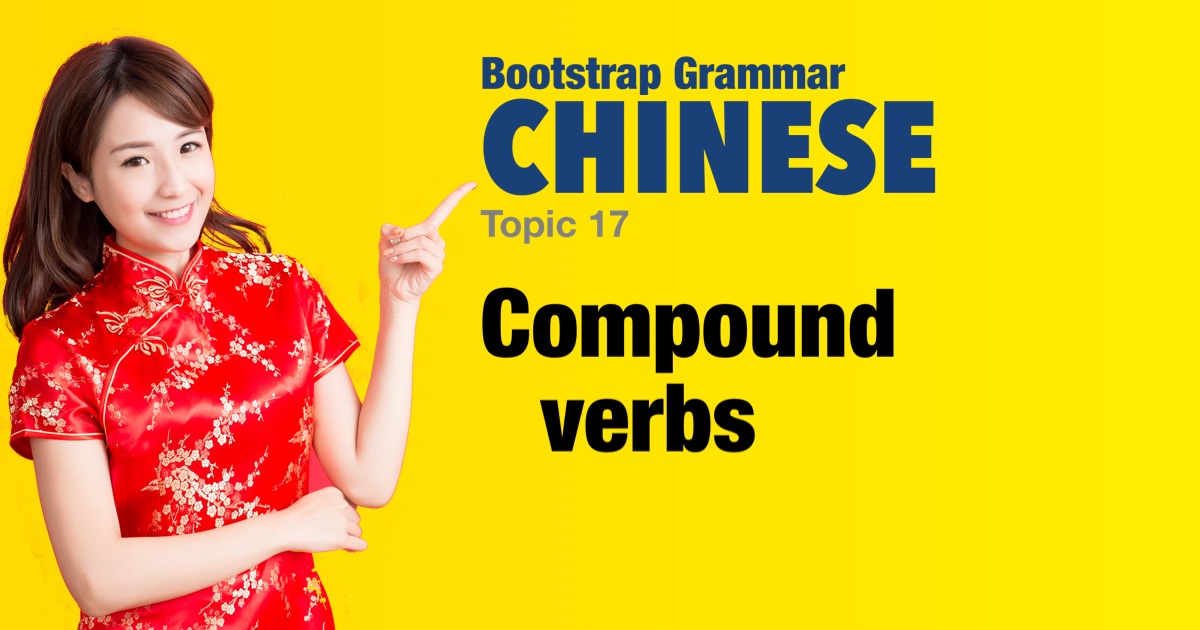Chinese grammar - Compound verbs |
|||
|
|||
Compound verbs in Chinese are verbs that are composed of two or more characters, each contributing to the overall meaning of the verb. These combine a main verb with another verb, adjective, or noun to create a specific or nuanced meaning. Note that negating compound verbs requires simply adding the particle 不 (bù) before the verb. — However, for some compound verbs, 不 (bù) can split the verb to imply inability. This will be covered in a later topic. |
| Examples: | |
|
你帮助我。
nǐ bāngzhù wǒ. You help me.
|
|
|
他看见我。
tā kànjiàn wǒ. He sees me.
|
|
|
我认识他。
wǒ rènshí tā. I know him.
|
|
|
你认识她吗?
nǐ rènshí tā ma? Do you know her?
|
|
|
她不认识他吗?
tā bù rènshí tā ma? Doesn't she know him?
|
|
|
我告诉她。
wǒ gàosù tā. I tell her.
|
|
|
他帮助我。
tā bāngzhù wǒ. He helps me.
|
|
|
你学习汉语吗?
nǐ xuéxí hànyǔ ma? Do you study Chinese?
|
|
|
我学习汉语。
wǒ xuéxí hànyǔ. I study Chinese.
|
|
|
我理解你。
wǒ lǐjiě nǐ. I understand you.
|
|
|
我吃饭。
wǒ chīfàn. I am eating.
|
|
|
她看书。
tā kànshū. She reads.
|
|
|
孩子写字。
háizi xiězì. The child writes.
|
|
|
他每天唱歌。
tā měitiān chànggē. He sings every day.
|
|
|
她不喜欢我吗?
tā bù xǐhuān wǒ ma? Doesn't she like me?
|
|
|
我不认识他。
wǒ bù rènshi tā. I don't know him. |
|
|
你不认识她吗?
nǐ bù rènshi tā ma? Don't you know her? |
|
|
她不认识他吗?
tā bù rènshi tā ma? Doesn't she know him? |
|
|
你不学习汉语吗?
nǐ bù xuéxí hànyǔ ma? Don't you study Chinese? |
|
|
我不学习汉语。
wǒ bù xuéxí hànyǔ. I don't study Chinese. |
|
|
我不理解你。
wǒ bù lǐjiě nǐ. I don't understand you. |
|
 |
|



